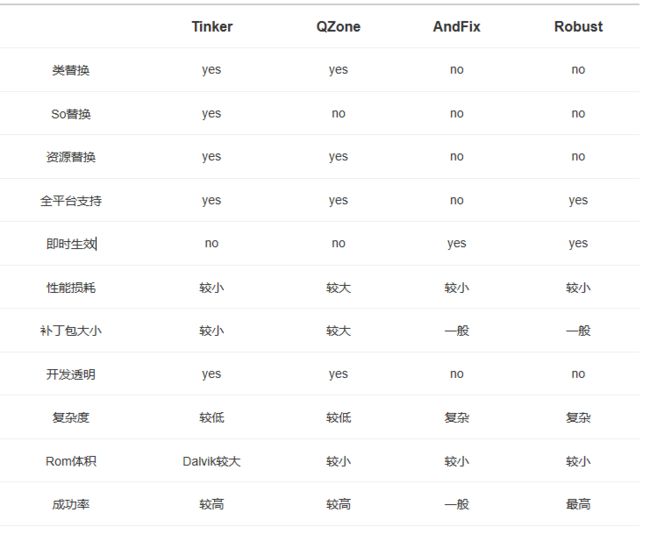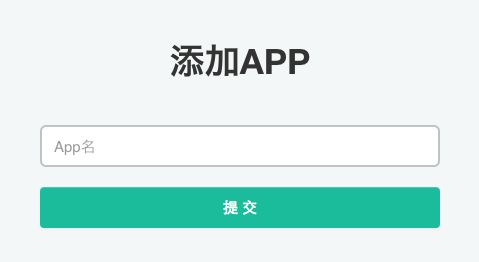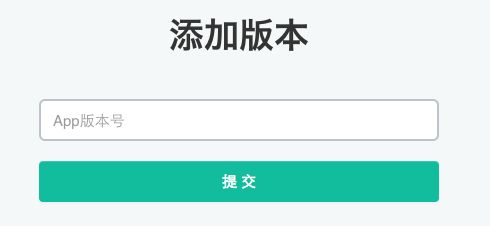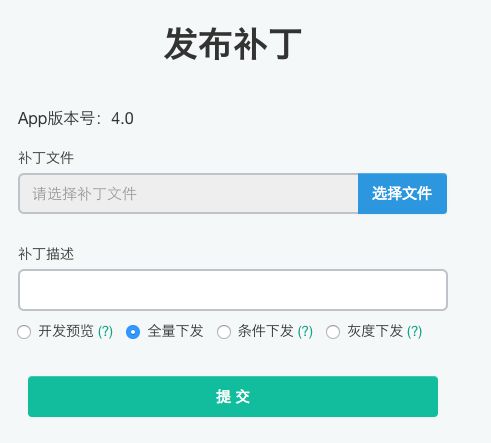什么是 Tinker?
Tinker 是一个开源项目(Github链接),它是微信官方的 Android 热补丁解决方案,它支持动态下发代码、So 库以及资源,让应用能够在不需要重新安装的情况下实现更新。
为什么使用 Tinker?
当前市面的热补丁方案有很多,其中比较出名的有阿里的 AndFix、美团的 Robust 以及 QZone 的超级补丁方案。但它们都存在无法解决的问题,这也是正是我们推出 Tinker 的原因。
Tinker热补丁方案不仅支持类、So 以及资源的替换,它还是2.X-7.X的全平台支持。利用Tinker我们不仅可以用做 bugfix,
甚至可以替代功能的发布。Tinker 已运行在微信的数亿 Android 设备上,那么为什么你不使用 Tinker 呢?
红色的是重点,也就是说不仅能修复线上的bug,小的新功能也可以新增;但是新增功能太多的话,还是建议做更新,起码,让用户第一时间感知我们在忙,在开发;
什么是 TinkerPatch 平台?
Tinker 需要使用者有一个后台可以下发和管理补丁包,并且需要处理传输安全等部署工作,TinkerPatch 平台帮你做了这些工作,提供了补丁后台托管,版本管理,保证传输安全等功能,让你无需搭建一个后台,无需关心部署操作,只需引入一个 SDK 即可立即使用 Tinker。
此外,通过深入研究 Tinker 源码,TinkerTinkerPatch 平台在 Tinker的基础上加入了以下特性:
- 一键傻瓜式接入;无需理解复杂的热修复原理,一行代码即可接入热修复。实现了自动反射 Appliction 与 Library,使用者无需对自己的项目做任何的改动;
- 补丁管理;实现了热补丁的版本管理,补丁的自动重试与异常时自动回退等功能。同时我们可以简单实现条件下发补丁,在出现异常情况时,我们也可以快速回滚补丁;
- 编译优化;简化了 Tinker 的编译复杂度,实现了备份路径选择,功能开关等功能。
为什么使用 TinkerPatch 平台?
市面上可能还有其他的一些热补丁服务,为什么我们需要选择 TinkerPatch 平台呢?
- 研发实力雄厚;Tinker 在微信的数亿用户上得到验证,它的稳定性与性能值得信赖。TinkerPatch 平台作为 Tinker 项目贡献者与管理者之一,在 Tinker 基础上开发了许多方便使用者的特性;
- 服务全面快速;TinkerPatch 平台客户关于热修复使用过程的所有问题在工作日内一个小时内响应,提供您满意的服务;
- 稳定可靠;TinkerPatch 平台上传的补丁文件都会保存在七牛云存储上,客户端 APP 只跟七牛服务器通讯,支持高并发,CDN分布全国,速度和稳定性有保证。
TinkerPatch 平台将与 Tinker 一起继续优化,四大组件代理/ABTest/安全模式等功能都将陆续推出,欢迎大家咨询。
什么是 Tinker?
平台使用说明
第一步 注册 TinkerPatch 平台
首先我们需要注册 TinkerPatch 平台账号,欢迎点击前往注册。
第二步 添加 APP
输入你的 APP 的名称,欢迎点击前往.
第三步 记录 AppKey
每一个 App 都有一个唯一的 AppKey 作为标识,在客户端需要传入这个值。
第四步 添加 APP 版本
每一个 APP 版本对应一个已经发布的 base apk, 这里我们可以使用 APP 版本作为 TinkerID。我们需要保证每个发布的 APK 都采用不用的 APP 版本。
第五步 发布补丁
选择一个具体的 APP 版本,可以点击发布新补丁。只需选择生成好的补丁文件,这里建议输入具体的补丁描述,方便历史管理。
SDK集成
第一步 添加 gradle 插件依赖
gradle 远程仓库依赖 jcenter
buildscript {
repositories {
jcenter()
}
dependencies {
// TinkerPatch 插件
classpath "com.tinkerpatch.sdk:tinkerpatch-gradle-plugin:1.2.13"
}
}
第二步 集成 TinkerPatch SDK
添加 TinkerPatch SDK 库的 denpendencies 依赖
dependencies {
// 若使用annotation需要单独引用,对于tinker的其他库都无需再引用
// provided("com.tinkerpatch.tinker:tinker-android-anno:1.9.13")
compile("com.tinkerpatch.sdk:tinkerpatch-android-sdk:1.2.13")
}
第三步 集成 tinker插件
apply plugin: 'com.tencent.tinker.patch'
//这些事放在你项目的build.gradle中
gradle参数详解
我们将原apk包称为基准apk包,tinkerPatch直接使用基准apk包与新编译出来的apk包做差异,得到最终的补丁包。gradle配置的参数详细解释如下:
tinkerPatch 全局信息相关的配置项 默认值:
tinkerEnable 是否打开tinker的功能 默认值:true
oldApk 基准apk的路径,必须输入,负责错 默认值:null
newApk 选填,用于编译补丁apk路径。如果路径合法,即不再编译新的安装包,使用oldApk与newApk直接编译。 默认值:null
outputFolder 选填,设置编译输出路径。默认在build/outputs/tinkerPatch中 默认值: null
ignoreWarning 如果出现以下的情况,并且ignoreWarning为false,我们将中断编译。因为这些情况可能会导致编译出来的patch包带来风险:
1. minSdkVersion小于14,但是dexMode的值为"raw";
2. 新编译的安装包出现新增的四大组件(Activity, BroadcastReceiver...);
3. 定义在dex.loader用于加载补丁的类不在main dex中;
4. 定义在dex.loader用于加载补丁的类出现修改;
5. resources.arsc改变,但没有使用applyResourceMapping编译。
useSign 在运行过程中,我们需要验证基准apk包与补丁包的签名是否一致,我们是否需要为你签名。 默认值:true
buildConfig参数详解
applyMapping 可选参数;在编译新的apk时候,我们希望通过保持旧apk的proguard混淆方式,从而减少补丁包的大小。这个只是推荐设置,不设置applyMapping也不会影响任何的assemble编译。 默认值:null
applyResourceMapping 可选参数;在编译新的apk时候,我们希望通过旧apk的R.txt文件保持ResId的分配,这样不仅可以减少补丁包的大小,同时也避免由于ResId改变导致remote view异常。 默认值:null
tinkerId 在运行过程中,我们需要验证基准apk包的tinkerId是否等于补丁包的tinkerId。这个是决定补丁包能运行在哪些基准包上面,一般来说我们可以使用git版本号、versionName等等。
keepDexApply 如果我们有多个dex,编译补丁时可能会由于类的移动导致变更增多。若打开keepDexApply模式,补丁包将根据基准包的类分布来编译。 默认值:false
isProtectedApp 是否使用加固模式,仅仅将变更的类合成补丁。注意,这种模式仅仅可以用于加固应用中。 默认值:false
supportHotplugComponent(added 1.9.0) 是否支持新增非export的Activity 默认值:false
dex参数详解
dexMode 只能是'raw'或者'jar'。
1.对于'raw'模式,我们将会保持输入dex的格式。
2.对于'jar'模式,我们将会把输入dex重新压缩封装到jar。如果你的minSdkVersion小于14,你必须选择‘jar’模式,而且它更省存储空间,但是验证md5时比'raw'模式耗时。默认我们并不会去校验md5,一般情况下选择jar模式即可。 默认:jar
pattern 需要处理dex路径,支持*、?通配符,必须使用'/'分割。路径是相对安装包的,例如assets/... 默认值:[]
loader 这一项非常重要,它定义了哪些类在加载补丁包的时候会用到。这些类是通过Tinker无法修改的类,也是一定要放在main dex的类。
这里需要定义的类有:
1. 你自己定义的Application类;
2. Tinker库中用于加载补丁包的部分类,即com.tencent.tinker.loader.*;
3. 如果你自定义了TinkerLoader,需要将它以及它引用的所有类也加入loader中;
4. 其他一些你不希望被更改的类,例如Sample中的BaseBuildInfo类。这里需要注意的是,这些类的直接引用类也需要加入到loader中。或者你需要将这个类变成非preverify。
5. 使用1.7.6版本之后的gradle版本,参数1、2会自动填写。若使用newApk或者命令行版本编译,1、2依然需要手动填写 默认值:[]
lib参数详解
pattern 需要处理lib路径,支持*、?通配符,必须使用'/'分割。与dex.pattern一致, 路径是相对安装包的,例如assets/... 默认值:[]
res参数详解
pattern 需要处理res路径,支持*、?通配符,必须使用'/'分割。与dex.pattern一致, 路径是相对安装包的,例如assets/...,务必注意的是,只有满足pattern的资源才会放到合成后的资源包。 默认值:[]
ignoreChange 支持*、?通配符,必须使用'/'分割。若满足ignoreChange的pattern,在编译时会忽略该文件的新增、删除与修改。 最极端的情况,ignoreChange与上面的pattern一致,即会完全忽略所有资源的修改。 默认值:[]
largeModSize 对于修改的资源,如果大于largeModSize,我们将使用bsdiff算法。这可以降低补丁包的大小,但是会增加合成时的复杂度。默认大小为100kb 默认值:100
packageConfig参数详解
configField configField("key", "value"), 默认我们自动从基准安装包与新安装包的Manifest中读取tinkerId,并自动写入configField。在这里,你可以定义其他的信息,在运行时可以通过TinkerLoadResult.getPackageConfigByName得到相应的数值。但是建议直接通过修改代码来实现,例如BuildConfig。 默认值:TINKER_ID, NEW_TINKER_ID
sevenZip参数详解
zipArtifact 例如"com.tencent.mm:SevenZip:1.1.10",将自动根据机器属性获得对应的7za运行文件,推荐使用 默认值:null
官方的sample的build.Gradle配置,可以参考
apply plugin: 'com.android.application'
dependencies {
if (is_gradle_3()) {
implementation fileTree(dir: 'libs', include: ['*.jar'])
testImplementation 'junit:junit:4.12'
implementation "com.android.support:appcompat-v7:23.1.1"
api("com.tencent.tinker:tinker-android-lib:${TINKER_VERSION}") { changing = true }
// Maven local cannot handle transist dependencies.
implementation("com.tencent.tinker:tinker-android-loader:${TINKER_VERSION}") { changing = true }
annotationProcessor("com.tencent.tinker:tinker-android-anno:${TINKER_VERSION}") { changing = true }
compileOnly("com.tencent.tinker:tinker-android-anno:${TINKER_VERSION}") { changing = true }
implementation "com.android.support:multidex:1.0.1"
//use to test multiDex
// implementation group: 'com.google.guava', name: 'guava', version: '19.0'
// implementation "org.scala-lang:scala-library:2.11.7"
} else {
compile fileTree(dir: 'libs', include: ['*.jar'])
testCompile 'junit:junit:4.12'
compile "com.android.support:appcompat-v7:23.1.1"
compile("com.tencent.tinker:tinker-android-lib:${TINKER_VERSION}") { changing = true }
provided("com.tencent.tinker:tinker-android-anno:${TINKER_VERSION}") { changing = true }
compile "com.android.support:multidex:1.0.1"
//use to test multiDex
// compile group: 'com.google.guava', name: 'guava', version: '19.0'
// compile "org.scala-lang:scala-library:2.11.7"
}
}
def gitSha() {
try {
String gitRev = 'git rev-parse --short HEAD'.execute(null, project.rootDir).text.trim()
if (gitRev == null) {
throw new GradleException("can't get git rev, you should add git to system path or just input test value, such as 'testTinkerId'")
}
return gitRev
} catch (Exception e) {
throw new GradleException("can't get git rev, you should add git to system path or just input test value, such as 'testTinkerId'")
}
}
def javaVersion = JavaVersion.VERSION_1_7
android {
compileSdkVersion 26
if (!is_gradle_3()) {
buildToolsVersion '26.0.2'
}
compileOptions {
sourceCompatibility javaVersion
targetCompatibility javaVersion
}
//recommend
dexOptions {
jumboMode = true
}
signingConfigs {
release {
try {
storeFile file("./keystore/release.keystore")
storePassword "testres"
keyAlias "testres"
keyPassword "testres"
} catch (ex) {
throw new InvalidUserDataException(ex.toString())
}
}
debug {
storeFile file("./keystore/debug.keystore")
}
}
defaultConfig {
applicationId "tinker.sample.android"
minSdkVersion 14
targetSdkVersion 26
versionCode 1
versionName "1.0.0"
/**
* you can use multiDex and install it in your ApplicationLifeCycle implement
*/
multiDexEnabled true
/**
* buildConfig can change during patch!
* we can use the newly value when patch
*/
buildConfigField "String", "MESSAGE", "\"I am the base apk\""
// buildConfigField "String", "MESSAGE", "\"I am the patch apk\""
/**
* client version would update with patch
* so we can get the newly git version easily!
*/
buildConfigField "String", "TINKER_ID", "\"${getTinkerIdValue()}\""
buildConfigField "String", "PLATFORM", "\"all\""
}
// aaptOptions{
// additionalParameters "--emit-ids", "${project.file('public.txt')}"
// cruncherEnabled false
// }
// //use to test flavors support
// productFlavors {
// flavor1 {
// applicationId 'tinker.sample.android.flavor1'
// }
//
// flavor2 {
// applicationId 'tinker.sample.android.flavor2'
// }
// }
buildTypes {
release {
minifyEnabled true
signingConfig signingConfigs.release
proguardFiles getDefaultProguardFile('proguard-android.txt'), project.file('proguard-rules.pro')
}
debug {
debuggable true
minifyEnabled false
signingConfig signingConfigs.debug
}
}
sourceSets {
main {
jniLibs.srcDirs = ['libs']
}
}
}
def bakPath = file("${buildDir}/bakApk/")
/**
* you can use assembleRelease to build you base apk
* use tinkerPatchRelease -POLD_APK= -PAPPLY_MAPPING= -PAPPLY_RESOURCE= to build patch
* add apk from the build/bakApk
*/
ext {
//for some reason, you may want to ignore tinkerBuild, such as instant run debug build?
tinkerEnabled = true
//for normal build
//old apk file to build patch apk
tinkerOldApkPath = "${bakPath}/app-debug-0424-15-02-56.apk"
//proguard mapping file to build patch apk
tinkerApplyMappingPath = "${bakPath}/app-debug-1018-17-32-47-mapping.txt"
//resource R.txt to build patch apk, must input if there is resource changed
tinkerApplyResourcePath = "${bakPath}/app-debug-0424-15-02-56-R.txt"
//only use for build all flavor, if not, just ignore this field
tinkerBuildFlavorDirectory = "${bakPath}/app-1018-17-32-47"
}
def getOldApkPath() {
return hasProperty("OLD_APK") ? OLD_APK : ext.tinkerOldApkPath
}
def getApplyMappingPath() {
return hasProperty("APPLY_MAPPING") ? APPLY_MAPPING : ext.tinkerApplyMappingPath
}
def getApplyResourceMappingPath() {
return hasProperty("APPLY_RESOURCE") ? APPLY_RESOURCE : ext.tinkerApplyResourcePath
}
def getTinkerIdValue() {
return hasProperty("TINKER_ID") ? TINKER_ID : gitSha()
}
def buildWithTinker() {
return hasProperty("TINKER_ENABLE") ? Boolean.parseBoolean(TINKER_ENABLE) : ext.tinkerEnabled
}
def getTinkerBuildFlavorDirectory() {
return ext.tinkerBuildFlavorDirectory
}
if (buildWithTinker()) {
apply plugin: 'com.tencent.tinker.patch'
tinkerPatch {
/**
* necessary,default 'null'
* the old apk path, use to diff with the new apk to build
* add apk from the build/bakApk
*/
oldApk = getOldApkPath()
/**
* optional,default 'false'
* there are some cases we may get some warnings
* if ignoreWarning is true, we would just assert the patch process
* case 1: minSdkVersion is below 14, but you are using dexMode with raw.
* it must be crash when load.
* case 2: newly added Android Component in AndroidManifest.xml,
* it must be crash when load.
* case 3: loader classes in dex.loader{} are not keep in the main dex,
* it must be let tinker not work.
* case 4: loader classes in dex.loader{} changes,
* loader classes is ues to load patch dex. it is useless to change them.
* it won't crash, but these changes can't effect. you may ignore it
* case 5: resources.arsc has changed, but we don't use applyResourceMapping to build
*/
ignoreWarning = false
/**
* optional,default 'true'
* whether sign the patch file
* if not, you must do yourself. otherwise it can't check success during the patch loading
* we will use the sign config with your build type
*/
useSign = true
/**
* optional,default 'true'
* whether use tinker to build
*/
tinkerEnable = buildWithTinker()
/**
* Warning, applyMapping will affect the normal android build!
*/
buildConfig {
/**
* optional,default 'null'
* if we use tinkerPatch to build the patch apk, you'd better to apply the old
* apk mapping file if minifyEnabled is enable!
* Warning:
* you must be careful that it will affect the normal assemble build!
*/
applyMapping = getApplyMappingPath()
/**
* optional,default 'null'
* It is nice to keep the resource id from R.txt file to reduce java changes
*/
applyResourceMapping = getApplyResourceMappingPath()
/**
* necessary,default 'null'
* because we don't want to check the base apk with md5 in the runtime(it is slow)
* tinkerId is use to identify the unique base apk when the patch is tried to apply.
* we can use git rev, svn rev or simply versionCode
* we will gen the tinkerId in your manifest automatic
*/
tinkerId = getTinkerIdValue()
/**
* if keepDexApply is true, class in which dex refer to the old apk.
* open this can reduce the dex diff file size.
*/
keepDexApply = false
/**
* optional, default 'false'
* Whether tinker should treat the base apk as the one being protected by app
* protection tools.
* If this attribute is true, the generated patch package will contain a
* dex including all changed classes instead of any dexdiff patch-info files.
*/
isProtectedApp = false
/**
* optional, default 'false'
* Whether tinker should support component hotplug (add new component dynamically).
* If this attribute is true, the component added in new apk will be available after
* patch is successfully loaded. Otherwise an error would be announced when generating patch
* on compile-time.
*
* Notice that currently this feature is incubating and only support NON-EXPORTED Activity
*/
supportHotplugComponent = false
}
dex {
/**
* optional,default 'jar'
* only can be 'raw' or 'jar'. for raw, we would keep its original format
* for jar, we would repack dexes with zip format.
* if you want to support below 14, you must use jar
* or you want to save rom or check quicker, you can use raw mode also
*/
dexMode = "jar"
/**
* necessary,default '[]'
* what dexes in apk are expected to deal with tinkerPatch
* it support * or ? pattern.
*/
pattern = ["classes*.dex",
"assets/secondary-dex-?.jar"]
/**
* necessary,default '[]'
* Warning, it is very very important, loader classes can't change with patch.
* thus, they will be removed from patch dexes.
* you must put the following class into main dex.
* Simply, you should add your own application {@code tinker.sample.android.SampleApplication}
* own tinkerLoader, and the classes you use in them
*
*/
loader = [
//use sample, let BaseBuildInfo unchangeable with tinker
"tinker.sample.android.app.BaseBuildInfo"
]
}
lib {
/**
* optional,default '[]'
* what library in apk are expected to deal with tinkerPatch
* it support * or ? pattern.
* for library in assets, we would just recover them in the patch directory
* you can get them in TinkerLoadResult with Tinker
*/
pattern = ["lib/*/*.so"]
}
res {
/**
* optional,default '[]'
* what resource in apk are expected to deal with tinkerPatch
* it support * or ? pattern.
* you must include all your resources in apk here,
* otherwise, they won't repack in the new apk resources.
*/
pattern = ["res/*", "assets/*", "resources.arsc", "AndroidManifest.xml"]
/**
* optional,default '[]'
* the resource file exclude patterns, ignore add, delete or modify resource change
* it support * or ? pattern.
* Warning, we can only use for files no relative with resources.arsc
*/
ignoreChange = ["assets/sample_meta.txt"]
/**
* default 100kb
* for modify resource, if it is larger than 'largeModSize
* we would like to use bsdiff algorithm to reduce patch file size
*/
largeModSize = 100
}
packageConfig {
/**
* optional,default 'TINKER_ID, TINKER_ID_VALUE' 'NEW_TINKER_ID, NEW_TINKER_ID_VALUE'
* package meta file gen. path is assets/package_meta.txt in patch file
* you can use securityCheck.getPackageProperties() in your ownPackageCheck method
* or TinkerLoadResult.getPackageConfigByName
* we will get the TINKER_ID from the old apk manifest for you automatic,
* other config files (such as patchMessage below)is not necessary
*/
configField("patchMessage", "tinker is sample to use")
/**
* just a sample case, you can use such as sdkVersion, brand, channel...
* you can parse it in the SamplePatchListener.
* Then you can use patch conditional!
*/
configField("platform", "all")
/**
* patch version via packageConfig
*/
configField("patchVersion", "1.0")
}
//or you can add config filed outside, or get meta value from old apk
//project.tinkerPatch.packageConfig.configField("test1", project.tinkerPatch.packageConfig.getMetaDataFromOldApk("Test"))
//project.tinkerPatch.packageConfig.configField("test2", "sample")
/**
* if you don't use zipArtifact or path, we just use 7za to try
*/
sevenZip {
/**
* optional,default '7za'
* the 7zip artifact path, it will use the right 7za with your platform
*/
zipArtifact = "com.tencent.mm:SevenZip:1.1.10"
/**
* optional,default '7za'
* you can specify the 7za path yourself, it will overwrite the zipArtifact value
*/
// path = "/usr/local/bin/7za"
}
}
List flavors = new ArrayList<>();
project.android.productFlavors.each { flavor -
flavors.add(flavor.name)
}
boolean hasFlavors = flavors.size() > 0
def date = new Date().format("MMdd-HH-mm-ss")
/**
* bak apk and mapping
*/
android.applicationVariants.all { variant ->
/**
* task type, you want to bak
*/
def taskName = variant.name
tasks.all {
if ("assemble${taskName.capitalize()}".equalsIgnoreCase(it.name)) {
it.doLast {
copy {
def fileNamePrefix = "${project.name}-${variant.baseName}"
def newFileNamePrefix = hasFlavors ? "${fileNamePrefix}" : "${fileNamePrefix}-${date}"
def destPath = hasFlavors ? file("${bakPath}/${project.name}-${date}/${variant.flavorName}") : bakPath
from variant.outputs.first().outputFile
into destPath
rename { String fileName ->
fileName.replace("${fileNamePrefix}.apk", "${newFileNamePrefix}.apk")
}
from "${buildDir}/outputs/mapping/${variant.dirName}/mapping.txt"
into destPath
rename { String fileName ->
fileName.replace("mapping.txt", "${newFileNamePrefix}-mapping.txt")
}
from "${buildDir}/intermediates/symbols/${variant.dirName}/R.txt"
into destPath
rename { String fileName ->
fileName.replace("R.txt", "${newFileNamePrefix}-R.txt")
}
}
}
}
}
}
project.afterEvaluate {
//sample use for build all flavor for one time
if (hasFlavors) {
task(tinkerPatchAllFlavorRelease) {
group = 'tinker'
def originOldPath = getTinkerBuildFlavorDirectory()
for (String flavor : flavors) {
def tinkerTask = tasks.getByName("tinkerPatch${flavor.capitalize()}Release")
dependsOn tinkerTask
def preAssembleTask = tasks.getByName("process${flavor.capitalize()}ReleaseManifest")
preAssembleTask.doFirst {
String flavorName = preAssembleTask.name.substring(7, 8).toLowerCase() + preAssembleTask.name.substring(8, preAssembleTask.name.length() - 15)
project.tinkerPatch.oldApk = "${originOldPath}/${flavorName}/${project.name}-${flavorName}-release.apk"
project.tinkerPatch.buildConfig.applyMapping = "${originOldPath}/${flavorName}/${project.name}-${flavorName}-release-mapping.txt"
project.tinkerPatch.buildConfig.applyResourceMapping = "${originOldPath}/${flavorName}/${project.name}-${flavorName}-release-R.txt"
}
}
}
task(tinkerPatchAllFlavorDebug) {
group = 'tinker'
def originOldPath = getTinkerBuildFlavorDirectory()
for (String flavor : flavors) {
def tinkerTask = tasks.getByName("tinkerPatch${flavor.capitalize()}Debug")
dependsOn tinkerTask
def preAssembleTask = tasks.getByName("process${flavor.capitalize()}DebugManifest")
preAssembleTask.doFirst {
String flavorName = preAssembleTask.name.substring(7, 8).toLowerCase() + preAssembleTask.name.substring(8, preAssembleTask.name.length() - 13)
project.tinkerPatch.oldApk = "${originOldPath}/${flavorName}/${project.name}-${flavorName}-debug.apk"
project.tinkerPatch.buildConfig.applyMapping = "${originOldPath}/${flavorName}/${project.name}-${flavorName}-debug-mapping.txt"
project.tinkerPatch.buildConfig.applyResourceMapping = "${originOldPath}/${flavorName}/${project.name}-${flavorName}-debug-R.txt"
}
}
}
}
}
}
task sortPublicTxt() {
doLast {
File originalFile = project.file("public.txt")
File sortedFile = project.file("public_sort.txt")
List sortedLines = new ArrayList<>()
originalFile.eachLine {
sortedLines.add(it)
}
Collections.sort(sortedLines)
sortedFile.delete()
sortedLines.each {
sortedFile.append("${it}\n")
}
}
}




